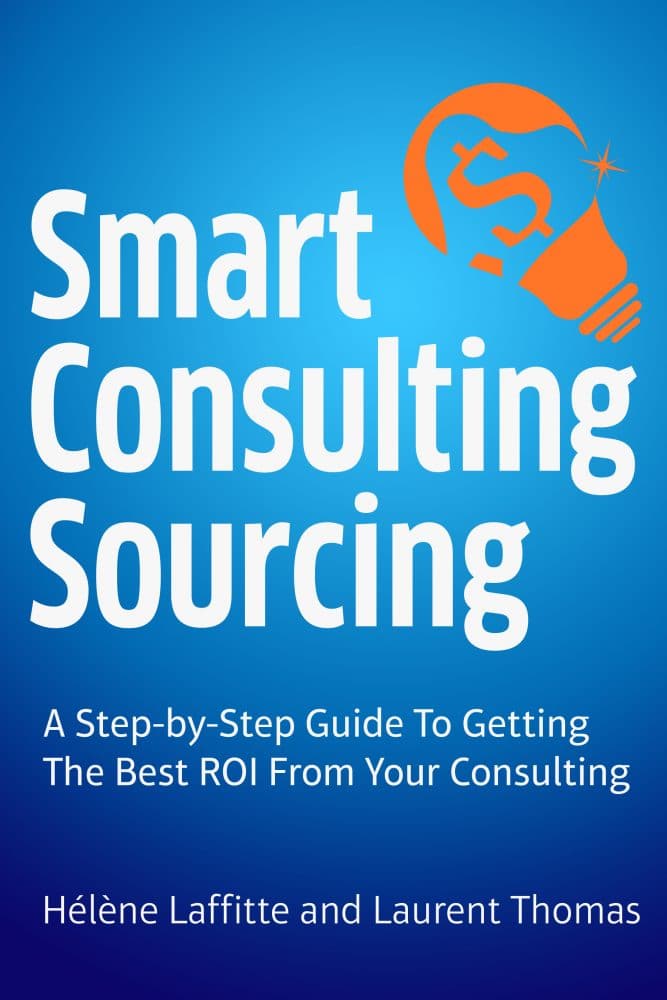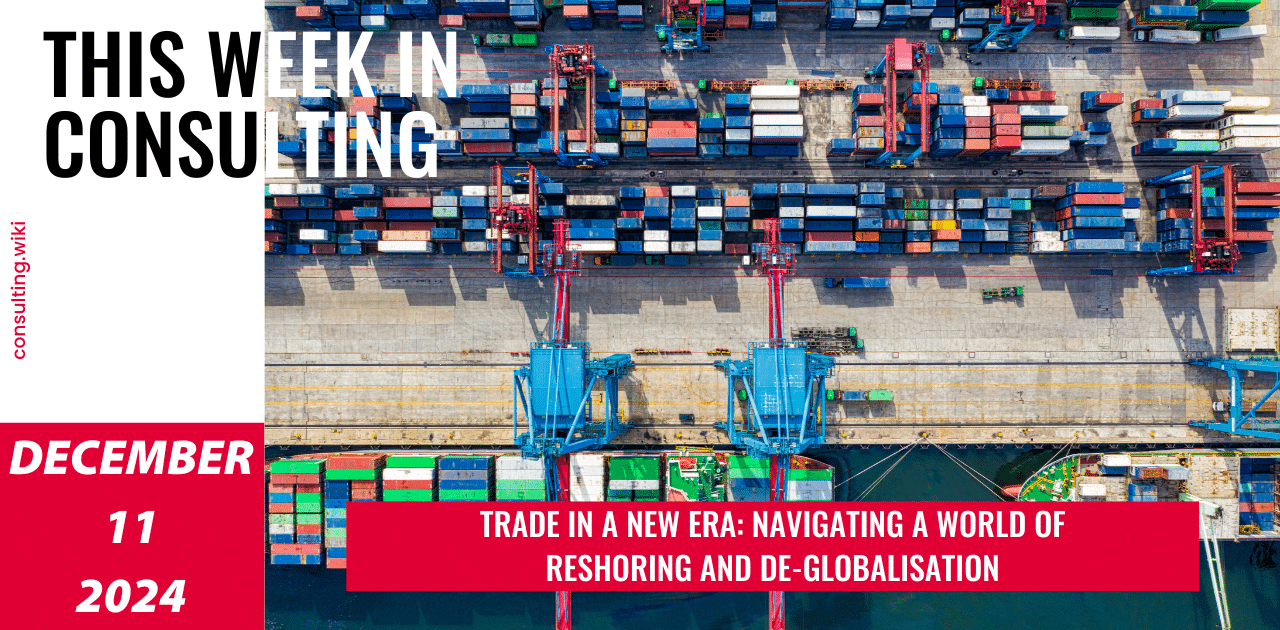
Why is Speed Essential in Taking Advantage of the Disruption?
Did you know that a customer downloads an app at the App store every millisecond? And that Apple sells 1,000 iPhones, iPads, or Macs every few minutes? And launches a new product every 4 weeks? The world of business moves at an impressive speed! We, as consumers, also love instant gratification and faster services in all kinds of categories.
Why is Speed Essential in Taking Advantage of the Disruption ?
It’s hard not to acknowledge the importance of speed in business today. And that naturally applies to Consulting as well.
“Visionary people face the same problems everyone else faces; but rather than get paralyzed by their problems, visionaries immediately commit themselves to finding a solution.” – Bill Hybels
How and Why Speed in Adapting to Disruption Applies to Consulting?
1- Customer Bargaining Power
Is as high as it has ever been, but the secret is well kept. The customer landscape is heterogeneous, and the companies that have structured their consulting procurement are quite rare. Even though the market is scattered and the concentration index of the customers ridiculously low, the share of wallet one buyer can represent for a given company can be significant. Do you know what your weight is in the business of the boutique consulting firms you use? The consulting industry is a fast-growing industry where, for the time being, the supply still outpaces the demand. Through clever competitions, by asking for rebates on volumes, or by leveraging the seasonality of the business to obtain discounts, there are multiple ways to exercise a strong bargaining power for a client. However, companies are not leveraging this situation to their advantage. For how long?
READ ALSO
There are, unfortunately, no guarantees in life, so your best bet is to have a solid agreement and prepare yourself and your organization to deal with any unexpected problems that might arise.
2- Suppliers Bargaining Power
depends on what we consider as suppliers. If we refer to talent acquisitions and talent costs, there are some challenges. If we refer to the bargaining power of suppliers providing services to consultants, this remains limited. It would be highly unlikely to see companies providing knowledge, slides design, or data crunching, capturing a significant share of the value.
3- Competitive Rivalry
is fierce in the consulting industry. Companies of all sizes and focus compete in the market. The concentration is rather low, with an Herthfindal index lower than 1000 (top 5 being each around 10%). Surprisingly, as only a limited number of consultancies have, indeed, a marketing function, they rarely analyze their market in depth.
As traditional players enjoy comfortable margins, you can see the emergence of low-cost consultancies like Greenwich in telco consulting, recently acquired by Deloitte.
4- Threat of Substitution is there
There is a clear and present danger but with a limited impact so far. The exponential growth of consulting marketplaces focused on talent will sooner or later take share from larger consultancies for spot projects. To date, as the industry is growing at 7% worldwide and has platforms barely representing 1% of market share, the impact is not perceivable. Another kind of substitution stems from the start-up world. The time where consultants were developing ad-hoc solutions in excel or MS access with some Visual Basic layer is behind us. Today they compete with start-ups focused on one particular problem and offering on-the-shelf solutions that can be customized for a fee
5- Threat of New Entrants
is a permanent issue that consultants have learned to leave with. Switching costs are relatively low, Capital Requirements Limited, and barriers to entry are almost nonexistent. With the changes happening in the industry, it becomes much easier to access all the services (knowledge, slides, …). All of these evolutions contribute to lower even further the barriers to entry.
Indeed, as surprising as it may sound, except in specific countries, anyone can set-up a shop and declare himself a consultant. The most frequent situation being the spin-off from existing consultancies when Partners decide to take control of their destiny and establish their own business. Businesses that they end-up frequently selling with significant upside to larger consultancies.
Companies slowly realize that they need to take the lead in changing the relationship with consultants. At the end of the day, they hold the keys, and most of the cards to change the status quo. Will most companies move to smarter consulting sourcing and at what pace? If you are buying consulting regularly, look no further: the answers lie with you.
6- How is all this benefitting to the Client?
For sure, clients have more choices than ever, and they can probably spend less while creating more value. Are they actually taking advantage of the situation?
We all know that entrepreneurs and business owners have to think fast to survive. It’s in their blood; moving quickly is a natural instinct to them. Still, it’s difficult to overstate the importance of speed in business. With the pace at which society progresses, companies have to do whatever it takes to stay relevant. Here are four reasons why speed is everything in business.
Let’s look at the speed of adoption and reaction to change.
Why is Speed Important?
1- Be Faster Than Your Competitors
With the speed at which business moves, keeping up is a constant task that never gets any easier. Everyone out there is pushing harder than ever to quickly take the next step, which leaves you with little time to prove yourself. If you can’t keep up and move quickly, your competitors will. They won’t hesitate to leave you in the dust if you can’t think on your feet.
2- Your Clients Expect It
We live in an age of near-instant gratification, where consumers are not-so-patiently awaiting the next big thing. Take phone releases, for example – every year, like clockwork, we see a new iPhone, a new Galaxy, a new everything. People simply aren’t satisfied with the status quo; they want something more, and they want it now. Companies must work quickly to satiate their appetites because audiences will have no qualms about moving to another product or service. As companies continue to meet these expectations too, overall standards rise, making speed all the more necessary. It’s a simple choice, either you’re going to or your competitors will, and they’ll crush you in the market.
3- Create a Culture of Speed
Once you learn to move quickly and maintain speed, a culture of speed naturally forms, where standards for speed are just as high – if not higher – than those of consumers. The benefits are obvious, but they can’t be overstated. With everyone and everything moving faster, innovation and efficiency go through the roof, blowing back your competition and blowing away your customers. No company in any industry can expect to get ahead with a slow culture; by design, entrepreneurship is all about moving forward and pushing innovation forward.
So why should we be concerned?
While many consultants and consulting firms have established practices advising clients on strategies to leverage disruptive trends and technologies, few apply this to themselves.
Investing in the technological innovations and next-generation business models is a fundamentally paradoxical concept in an industry driven by billable hours, billable days, and closely held best practices in the form of “knowledge capital”.
Many clients hire consultants to tap into strategic thinking – seeing the big picture, identifying scenarios, choosing options, and creating game plans. Yet, a conspicuous void exists when it comes to addressing strategic questions by and for the industry itself.
Repeatable processes, models, and tools are indeed important for efficiency, scalability, and profitability. Yet the physical delivery of these staples of the trade remains chained to an entrenched business model.
Consulting sourcing tips

How to negotiate framework agreements for consulting to your advantage?
How to negotiate framework agreements for consulting to your advantage?

Make-or-buy for consulting services 101
Make-or-buy for consulting services 101

How to Hone to Perfection Your Consultant Selection with Our Top 5 List of Attributes
You are moving forward with the project and close to making a final selection of your Consulting provider. Based on the proposal assessment described in one of our previous articles, you should now have a good sense of what the Consultant can do for you, on paper.
Previous Weeks’ issues

Holiday Season Reflections: Top Themes in Consulting 2024 | This Week in Consulting
In this edition of this week in consulting, we embrace the holiday season by reflecting on 2024’s key trends like generative AI, sustainability, and social impact.

The Changing Tide of International Trade | This Week in Consulting
In this edition of This Week in Consulting, we explore how regions contribute to global trade, the challenges they face, and the opportunities to adapt amid shifting geopolitics and policies.

Digital Transformation Decoded: Challenges, Insights, and Opportunities | This Week in Consulting
In this edition of This Week in Consulting, we delve deep into the challenges and opportunities of digital transformation across industries, offering insights to strategize, adapt, and lead.
Choose the best next step for you
Buy the Book

Talk to us
Hélène Laffitte is the CEO of Consulting Quest, a Global Performance-Driven Consulting Platform and author of “Smart Consulting Sourcing”, a step by step guide to getting the best ROI from your consulting. With a blend of experience in Procurement and Consulting, Hélène is passionate about helping Companies create more value through Consulting.





